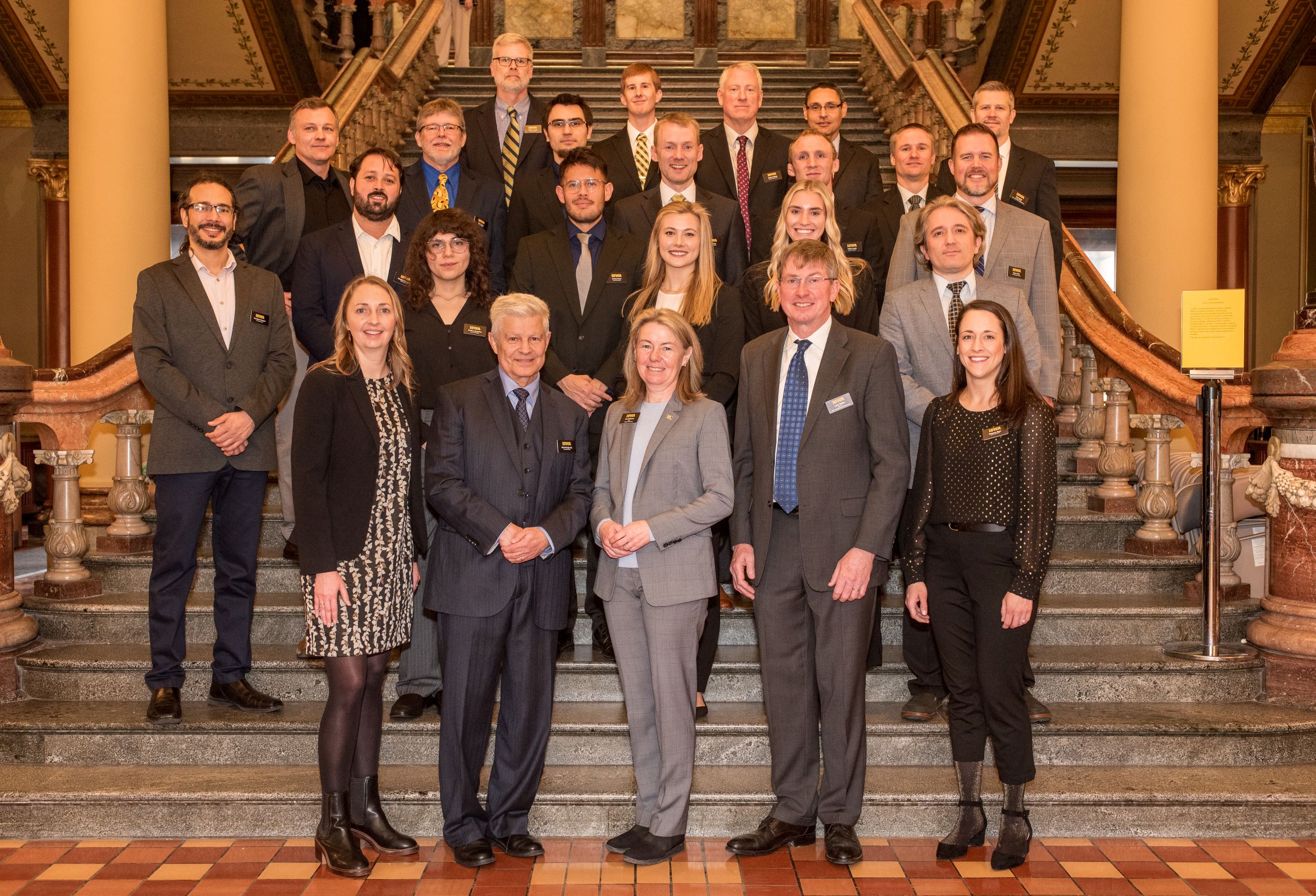IIHR—Hydroscience and Engineering is part of a new $6 million initiative funded by the U.S. Army Corps of Engineers and based at Auburn University to create the National Informational Collaboration on Ecohydraulics (NICE) to improve the understanding of ecological impacts from navigation locks and dams on fish and rivers.
Mississippi River lock and dam projects were constructed to improve inland navigation before the impacts on native fish species and their ability to migrate and move freely upstream and downstream were fully understood. As commercial navigation channels across the United States are in critical need of updates and maintenance, NICE will support informed decision-making to balance navigation needs with protecting threatened and endangered aquatic species and limiting the spread of invasive species. IIHR will contribute more than 80 years of expertise in fish passage to create computer models that can predict how changes to lock and dam projects along the Mississippi River system will affect the movement of fish.
IIHR will collect field data to build reliable models that accurately reflect river conditions, including measuring river flow, bathymetry (riverbed elevations), sediment, and water quality. This work will be centered at IIHR’s Lucile A. Carver Mississippi River Environmental Research Station (LACMRERS), located near Muscatine, Iowa. Made possible by a generous gift from the Roy J. Carver Foundation, LACMRERS offers an ideal location to support the important field-based monitoring and data collection needed within the NICE research program.
IIHR continues to grow and maintain its research portfolio, attracting diverse grants and contracts that provide the institute with financial stability. IIHR’s high scholarly productivity and associated funding demonstrate the institute’s ability to nurture and support various fluids-related research activities funded by a wide range of sponsors.
Mission
IIHR’s mission is to advance science and technology, providing innovative solutions for fluids-related problems while building upon its long tradition of excellence in laboratory, field, and simulation-based research and education.
IIHR fosters an inclusive, welcoming, and respectful environment that supports a thriving, diverse, and supportive community.
Our strength and success have always depended upon our people, who come from around the world and from a variety of backgrounds and viewpoints. Together, we are stronger.
Vision
IIHR’s vision is to be the recognized leader in fluids-related science, engineering, research, and discovery.
Value
IIHR comprises a diverse community that values excellence through integrity, transparency, mutual support, and respect. Our culture is rooted in scientific curiosity, mentorship, service, and stewardship.

Advisory board
Rafael L. Bras (2022–26)
School of Civil and Environmental Engineering, Georgia Institute of Technology
David A. Drazen (2022–26)
Naval Surface Warfare Center, Carderock Division
Martin Irvine (2022–26)
Commander Submarine Forces
Yong Lai (2024–28)
Bureau of Reclamation
Hugh J. Roberts (2020–24)
The Water Institute of the Gulf
Martin Teal (2023–27)
WEST Consultants Inc.
Gabriel Vecchi (2020–24)
Department of Geosciences, Princeton University
Kathleen White (2020–24)
U.S. Army Corps of Engineers
Ex officio members
Ann McKenna, Dean, College of Engineering, University of Iowa
Larry Weber, Director, IIHR—Hydroscience and Engineering, University of Iowa
Troy Lyons, Associate Director, IIHR—Hydroscience and Engineering, University of Iowa
Teresa Gaffey, Director of Finance and Business Operations, IIHR—Hydroscience and Engineering, University of Iowa